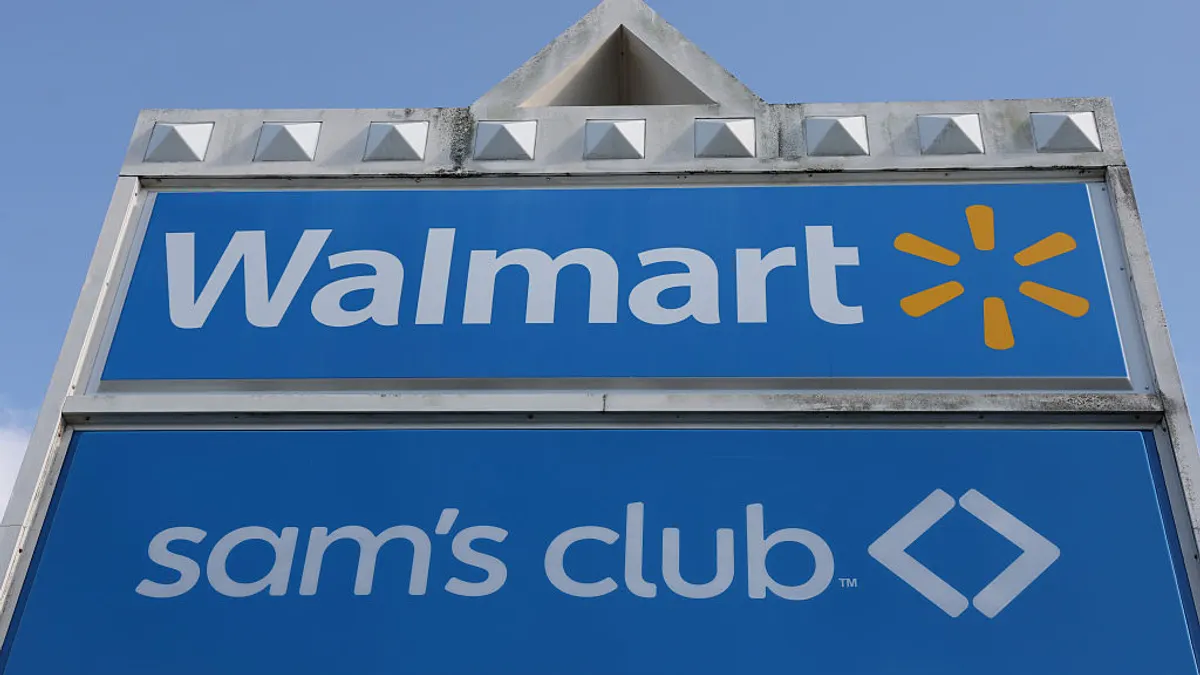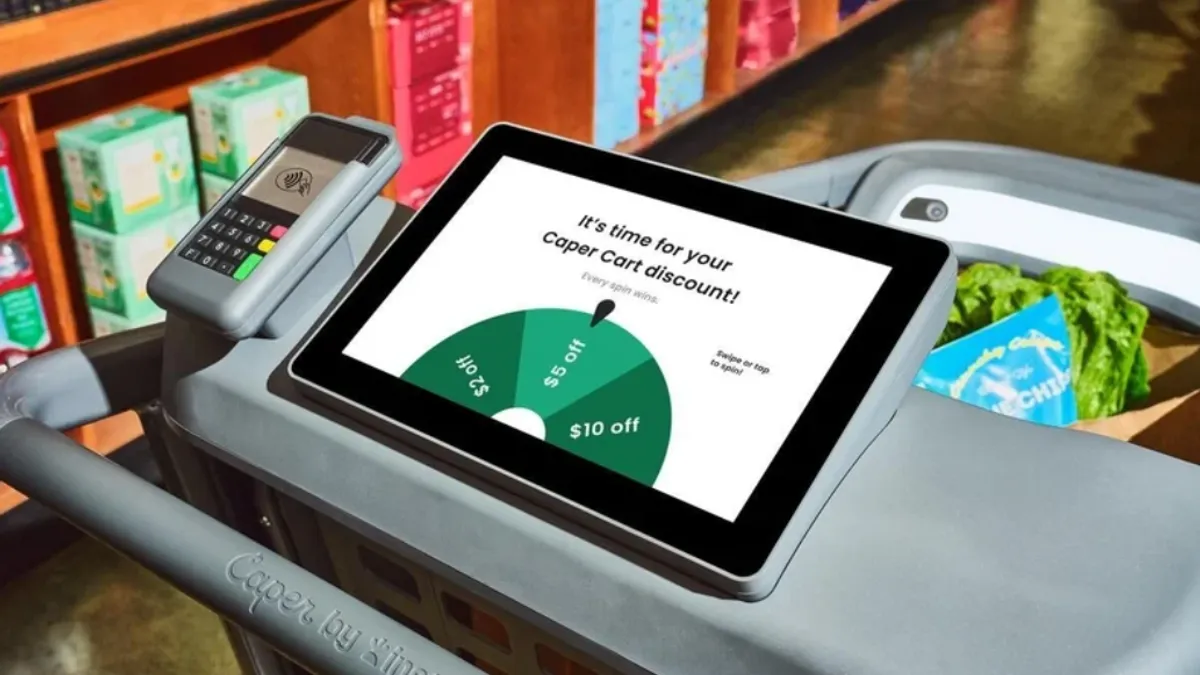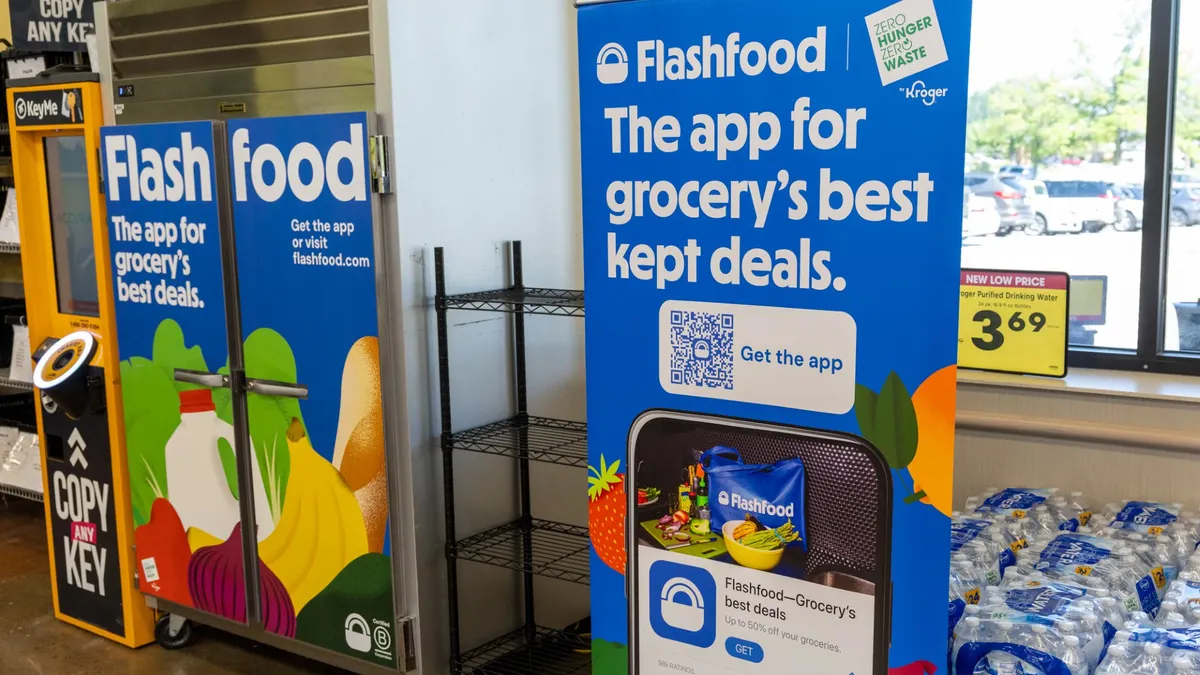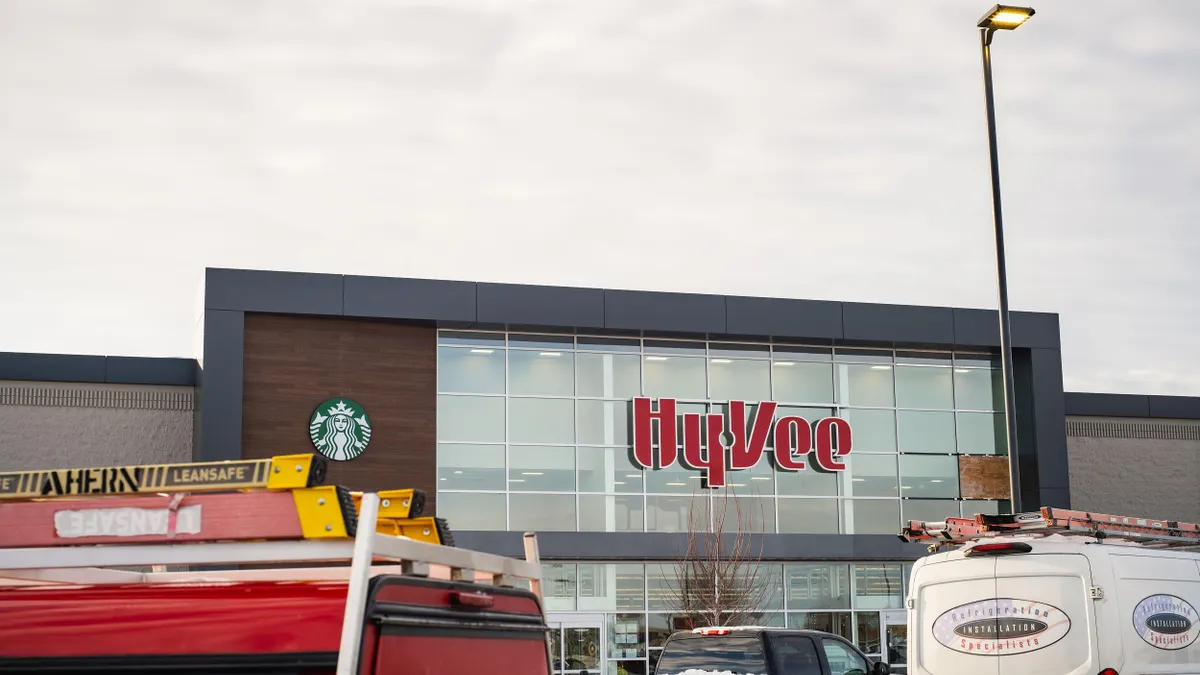Retailers have woven automation and artificial intelligence into everything from checkout lanes to marketing promotions in recent years. Now add another capability to that list: supplier negotiations.
Pactum, a startup based in California and Estonia and founded by alumni from Skype and Starship Technologies, automates the arduous — and often overlooked — process of regularly negotiating commercial contracts on a mass scale. Retailers like Walmart, which quietly launched a pilot program with Pactum earlier this year, have thousands of small-scale contracts that buyers don't have time to revisit. Left untended, these agreements can fail to reflect the latest business conditions, causing "value leakage" that can result in companies losing up to 40% of a contract's value, according to a 2017 report from KPMG.
Pactum's AI-based platform initiates contact and carries out negotiations via chatbot with suppliers, armed with reams of sales data and other information from client companies. In a recent interview, Martin Rand, Pactum's CEO and co-founder, talked more about how the platform works, how it got started and why bot-to-bot negotiations could become the future of contract management.
Editor's note: This interview has been edited for clarity and brevity.
GROCERY DIVE: Talk about your background and what brought you to this point.
MARTIN RAND: I used to be a product manager at Skype, then I helped set up a farm management system called VitalFields that scaled internationally and ended up getting sold to Monsanto. As a result of this acquisition, I became a commercial lead for all of Europe for Monsanto's Climate Corporation.
My weeks were basically spent traveling and my task was to negotiate with big food and ag enterprises in Europe. I could begin my week negotiating with the Ukrainians, negotiate with the Spanish on Wednesday and then finish the week off with the French, and I think I got to see all of the cognitive biases and all of the cultural differences there are to see in negotiations.
Negotiations are one place where technology and AI hasn't played a big role yet. But actually, all of commerce is built on negotiation, so it's absolutely crucial that the negotiations are as efficient as possible. I thought, "Wow, this is an opportunity."
Tell me more about the problem that Pactum is trying to solve here.
RAND: Most of our revenue comes from Fortune 500 companies, and all of them have a similar problem. They have tens of thousands of suppliers, and 80% of those suppliers are long tail, which means they are small enough that not enough human capacity can be allocated to manage them. So, essentially they go unmanaged. This can be a $100,000 deal or a couple hundreds of thousands or even low millions. But it's still a small deal for a very large retailer.
Deals can be neglected sometimes for years, and it's beneficial for both sides that it gets renegotiated. For large multinationals, there are tens and sometimes hundreds of millions of dollars locked inside those deals.
Is there more urgency to renegotiate deals in the current environment?
RAND: With COVID-19, some companies, especially smaller companies, have become cash-strapped, so payment terms and receiving their money earlier is especially important. Maybe their situation has changed, they would like to renegotiate a deal and maybe they would be able to reciprocate with a little discount or different rebate terms or different transportation terms. But sometimes they just don't get the airtime with the buyer, so now they can speak with the bot and get the same thing done. We've actually seen a lot of increased interest for our system.
What does Pactum need from a client like Walmart in order to be able to do these negotiations?
RAND: The process begins with our analysts, usually three of them going to meet our customer — now we do that over a video call, of course — and just spending a week or more doing interviews and learning. And then we build up what we call the value function. This is the engine of the system, which knows how to negotiate and what its limits are and what are the right trades to make. We use that data to build the negotiation flows.
The good thing is that our customers do those negotiations with people every day with larger suppliers. So they have this information aggregated, they have it in a database, and we integrate ourselves with the same database. The process works essentially on autopilot and the head of merchandising, automation or whoever it might be is able to check the back-end interface that we provide, and just see how many negotiations did the bot do last week and what were the outcomes and improvements.
How does the program know when to initiate a negotiation?
It can be programmed to trigger the negotiations at any moment, depending on information. It could be simply time, or it could be fluctuations in sales. It can be external information like commodity price changes. Or they can be simply triggered by a human in bulk.
Tell me a little bit more about the Walmart Partnership. How is that going, and how did it start?
I unfortunately cannot tell any details about the partnership itself. I can only talk generally [about] the value that our customers receive. But how did that come about? Estonia is one of the tech centers of Europe. And Estonian entrepreneurs interact with each other and we got a good introduction from a fellow Estonian startup, and the moment Walmart heard about this, the idea clicked with them and we continued.
How does a computer program negotiate a contract?
I can actually walk through an example of a negotiation. (Here Martin shares his screen and describes a sample interaction between the program and a supplier.)
So let's now imagine that I am a small cheese vendor to a large grocer. And I haven't spoken to them for five years because my cost to the retailer is only $100,000 per year. So now they reach out to me by email saying, "Hey, you're a good vendor, let's discuss the deal we have."
I click on the link and the bot opens, and then I click to accept the terms of service. And now I see that it knows a lot about me. It says, "You delivered on time 29% more frequently than your competitors. However, your profitability for us is 39% lower than your competitors."
So I click "Okay" and now they tell me, "You're in 160 stores right now, and we could get you potentially to 200 stores. And here are the cheese types that you're selling, the volumes, the prices, and this is the new amount of approximate revenue you could be making. Is this interesting?"
I say, "Yes, it is." This is my largest customer, it's very interesting. And now they ask if I'd like to change anything in the current deal, what would it be? And I say, "I'd like to have annual rebate payments instead of monthly." And now they ask for a discount of 8.7%. But that's a large discount — I can't do it.
So they're asking what could I give them? Well, there is value in this offer so I could give them 3%. And now they come down with the ask. But this still doesn't work for me. And now they turn it around and ask what could I, as a supplier, do for the grocer? I could give them a longer payment term or offer exclusivity on my cheese, or ship the products at smaller batches so it's operationally cheaper for them to handle it.
And let's say I give them a longer payment term. And there is value in this payment term, which the bot knows, and they say they'll shift the payment term from net 30 days to net 60. And now they come down with their ask to 4.8%, and it's actually close enough so that that works for me.
So that's basically it. And the bot will do that 20,000 times, and both sides can get a better deal.
What do suppliers make of this? Looking at that demo, I'm thinking this seems like a program that's mainly looking out for the retailer and squeezing the suppliers.
Over 70% of the suppliers who interacted with our bot would like to talk to the bot next time as well, not to a human. So the overwhelming majority of them actually like it. And this is simply because they wouldn't get this air time normally. And the bot is connected to all the information and will provide the maximum amount of gives to the other side, where then the supplier can choose the perfect terms for them.
If this hundred thousand dollar supplier gets that little bit of time with the human buyer, the buyer is probably in a hurry and wants to rush through the negotiation. But the AI has unlimited time. So the supplier feels that they are not pushed, that they can figure out the perfect combination of terms for them.
Does the renegotiation always happen on the retailer side or can the supplier initiate it?
We're working with such large companies, and the larger suppliers of those companies have also reached out to us. So we're now looking into deploying the system on their side as well. And once both sides are on the system, it becomes even more interesting. Possibly bot-to-bot negotiations can start happening in the future. And this brings a lot of new opportunities again, so essentially those deals could be renegotiated not yearly, but maybe weekly or daily or depending on every bigger fluctuation of commodity prices.
Does this program mainly work for large grocers, or can smaller independent grocers participate as well?
I would say it works for the large and medium ones, but not the small ones. There needs to be a lot of effort put in to set up the system because the system is doing commercial negotiations on behalf of our customer. And that means it has to know every tactic, every strategy, every piece of data. Each of the positive and negative levers that gets used in negotiations.
I saw in the demo that there was an option offering to let the supplier speak with one of the buyers, and you mentioned that the retail manager can look over some of the data. When else do humans factor into this process?
It depends on our customer. We can build what is called "human in the loop." So if some situations are too complicated for a system to handle, we can revert to a human, and then perhaps come back to a system and continue automatically. That depends entirely on the use case.
How is Pactum refining this technology and trying to make it better?
That's the big advantage of AI technology: It can learn from what it does and essentially every negotiation makes every other negotiation work better. To be able to strike better deals for both sides. Every negotiation is like an A/B test for the system, and it improves and improves, and the more scale we have, the better the negotiations become.






















